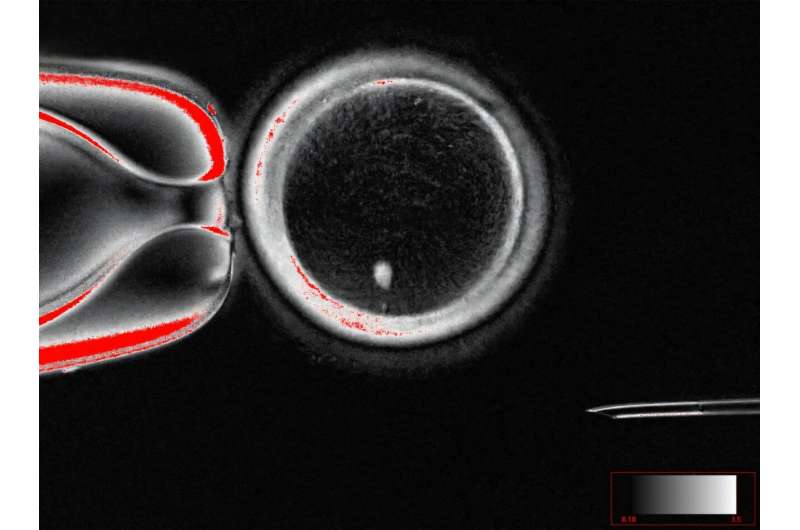The development offers a potential avenue for in vitro gametogenesis—the process of creating gametes—to treat infertility for women of advanced maternal age or those who are unable to produce viable eggs due to previous treatment of cancer or other causes.
“In addition to offering hope for millions of people with infertility due to lack of eggs or sperm, this method would allow for the possibility of same-sex couples to have a child genetically related to both partners,” said co-author Paula Amato, M.D., professor of obstetrics and gynecology in the OHSU School of Medicine.
Researchers noted several limitations in their study, and that they expect at least a decade of further research before the approach could be deemed safe or effective enough to advance to a clinical trial, even assuming such a trial would be permitted in the United States.

